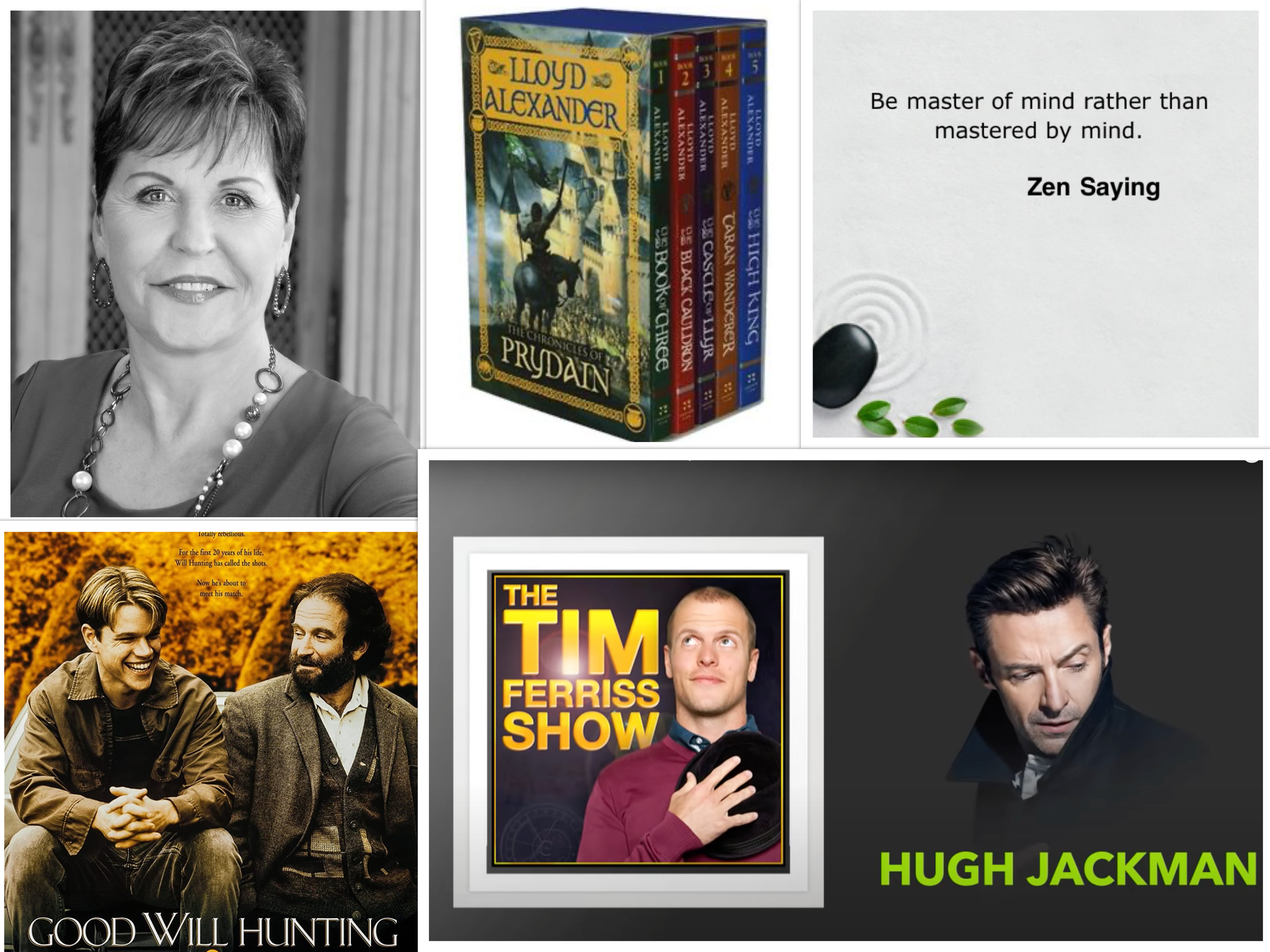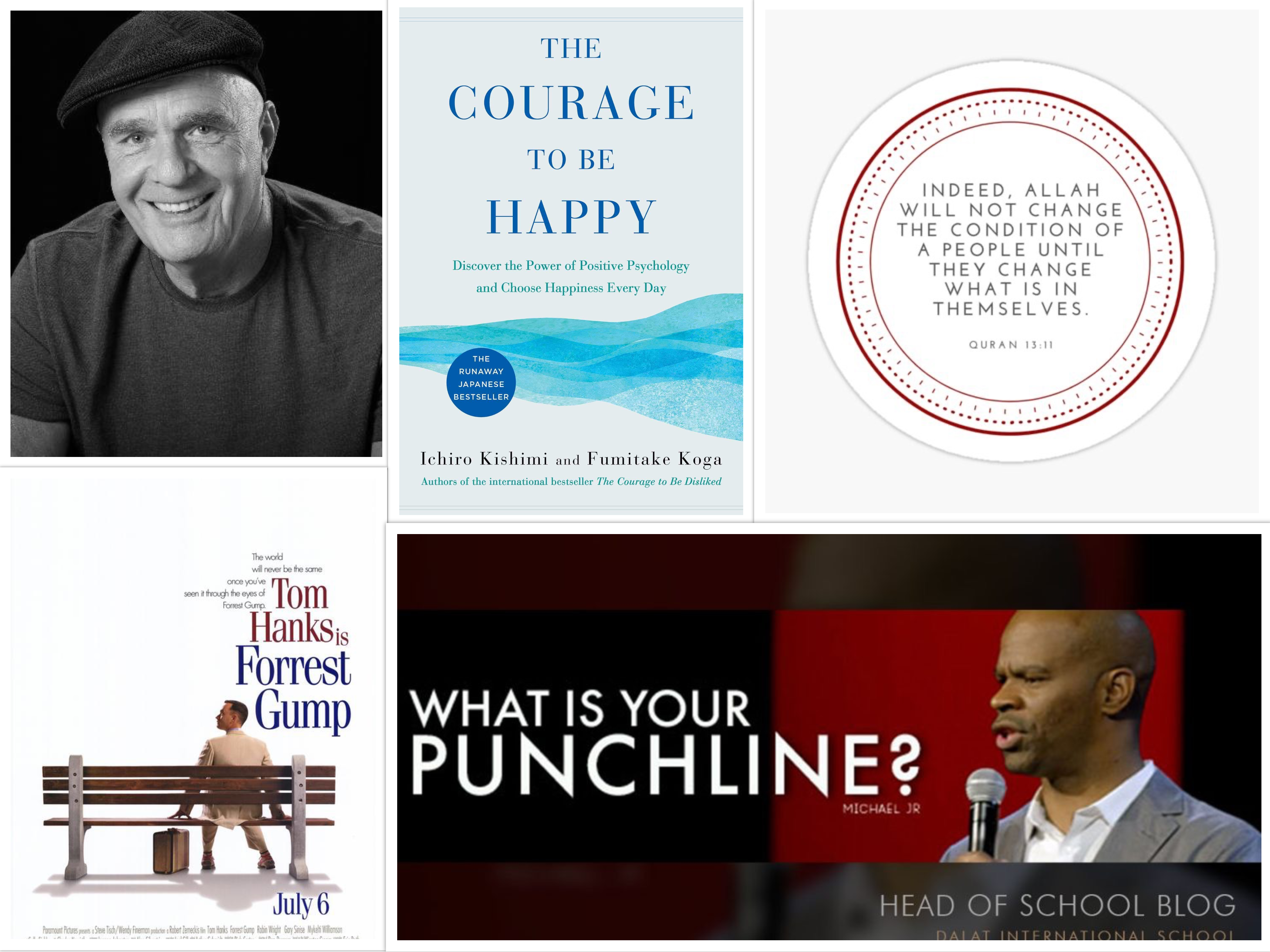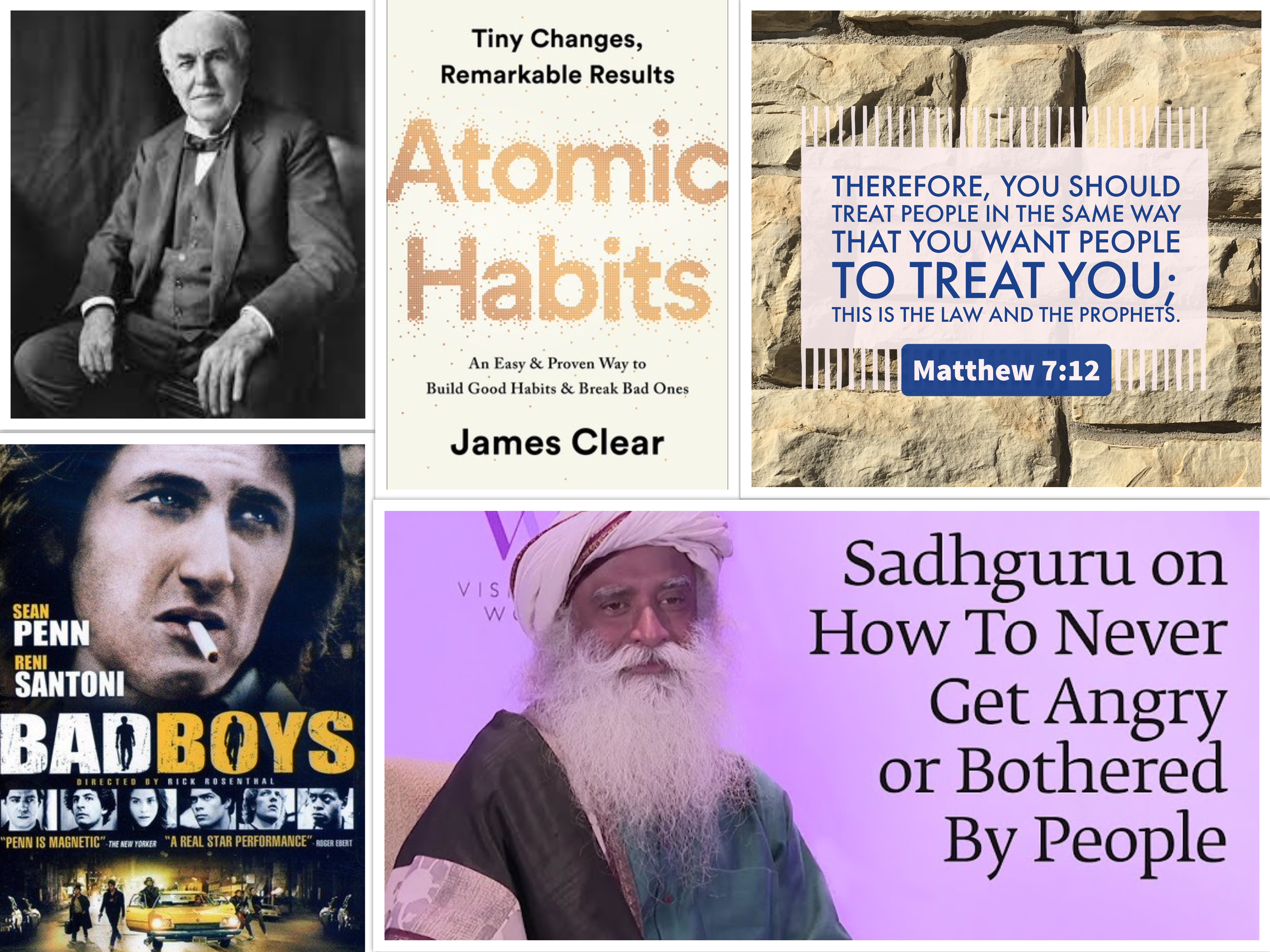Sunday Supplement #23 (October 17th, 2021)
Below is another Sunday Supplement with a quote worth sharing, a book worth reading, a movie worth watching, brainfood worth consuming, and a spiritual passage worth pondering.
I hope you take something away from these recommendations that enriches your week ahead!
Quote of the Week:
“Don’t wait for everything to be perfect before you decide to enjoy your life.”
– Joyce Meyer
Book of the Week:
The Chronicles of Prydain – Lloyd Alexander
I usually recommend a single book for this portion of the Sunday Supplement, but I’m recommending a Young Adult series this week. The Chronicles of Prydain consists of five books set in Prydain, a fictional country ruled by a High King who oversees several smaller kingdoms. Lloyd Alexander wrote the novels, and in the introductions of the books, he tells how he was inspired by Welsh folklore he became immersed in while receiving army combat intelligence training in World War II.
The first book, The Book of Three, follows Taran, an “assistant pig-keeper,” as he loses charge of caring for Hen Wen, a magical pig, and follows it into the forest, beginning his hero’s journey. On his adventure, he meets Prince Gwydion, son of the High King of Prydain, who is in pursuit of Hen Wen to consult the pig’s prophetic visions. The two team up, and after befriending a creature called Gorge, Taran gets captured by the “Cauldron-Born,” the undead warriors of the Horned King. While imprisoned, Taran befriends a princess held hostage, Eilonwy, and they escape captivity. They find the legendary sword Dyrnwyn in their retreat and later meet up with the rest of Taran’s group. Ffleeddur Fflam, a kind by birth who chooses to be a bard, joins their troop, and together with the companions (later joined by the dwarf Doli), determines to stop the plans of the Horned King and his maser Arwan.
The subsequent four novels follow Taran and each of the main characters established in the first book. Taran starts as a disgruntled young teenager who slowly learns to challenge and reframe his perceptions and thoughts about the world as he grows in each book. Each character has their own journey and contributes to each other’s growth in unique ways.
While this series is found in the Y/A or children’s sections of most libraries and stores, there is much to learn and enjoy from these books. I’ve read it in the last year, and it is one of my favorite ventures away from my usual reading patterns. I can’t recommend it more highly.
Movie of the Week:
Good Will Hunting tells the story of Will Hunting, a 20-year-old South Boston janitor and unknown maths genius who becomes the patient of a therapist and student of a renowned advanced mathematics professor as a part of a deferred prosecution agreement after he assaults a police officer. The movie delves into his relationships with the therapist, the professor, his girlfriend, and his friends and how he starts to face the task of confronting his past and thinking about his future for the first time in his life.
This film is a brilliant story that shook up Hollywood at the script stage. Matt Damon (Will Hunting) and Ben Affleck (Will’s friend Chuckle) wrote the screenplay early on in their acting pursuits, and it was this movie that launched their careers. At first, it was hard for the young actors to get the film made because they were adamant they would be playing a couple of the lead roles in the movie. Finally, the script got into the hands of Robin Williams (Dr. Sean Maguire), and he signed on, which gave them the star power to get the green light for production.
After the long wait for the movie to get made, the outcome was Oscar glory for Matt Damon and Ben Affleck. They both won the Academy Award for Best Writing – Screenplay Written Directly for the Screen. The film was nominated for seven additional Oscars, including Best Picture, and won one other category, Best Actor in a Supporting Role (Robin Williams.)
In an interview with Graham Norton, Damon talked about the experience of winning the Oscar at 27 years old and how he had the grateful realization that he didn’t screw over anyone to get the award. He explained how much he appreciated that he didn’t pursue the award his whole life trying to fill a hole. It’s an interesting perspective given that resonates with a message in the film about intimacy. I encourage you to watch the movie and find the link. It’s a brilliant story and sits high on many top film lists for a reason.
Brainfood of the Week:
Hugh Jackman Interview on The Tim Ferriss Show
I’ve featured an interview from The Tim Ferriss Show in four other Sunday Supplements (#1, #5, #9, and #12.) Each interview is worth checking out, and this will be another brilliant one from the massive catalog of interviews conducted by Tim Ferriss. While the guests are the highlights from the podcast, Tim is a superb conductor for creating a fantastic flow and excellent dialogue with his guests.
In Sunday Supplement #1, I cover a brief background on Tim, so I’ll focus on Hugh Jackman and his interview for this post.
Hugh Jackman is an Academy Award-nominated actor, Golden Globe and Tony Award-winning performer, and philanthropist. He is often touted as one of the kindest people in Hollywood and makes an impression as much off-screen as he does on-screen.
In this episode of The Tim Ferriss Show, Tim asks questions about Jackman’s past and how he got into acting, his morning routine with his wife, and his faith and meditation practices. The interview takes a journey that paints a wonderful picture of Jackman’s life and how he got to the point where he is today. There are so many brilliant nuggets of wisdom to pick up from the interview, and it is also highly entertaining.
Check it out. It certainly won’t be a waste of your time.
Closing Spiritual Passage:
“Be master of mind rather than mastered by mind.”
– Zen Proverb
This quote reminds me of how the mind can be one of the most powerful tools in our arsenal if appropriately utilized. At our best, our minds can guide us and help us along the journeys we set for ourselves and the paths we want to explore. The experiences we encounter can be scary or exciting entirely depending on how we view the situation. Our thoughts and beliefs can all be our conscious decision if we learn to choose that way.
On the opposite side is an uncontrolled mind that directs our thoughts without our conscious input. I’ve noticed these reins most when I’ve come out of a funk or a binge and realized I had been in a hole for a certain amount of time without realizing I was there. Micheal Singer, who I highlighted in Sunday Supplement #12, discusses how we are like moviegoers at movie theaters in his book The Untethered Soul. We can get caught up in an emotional scene and get lost in the narrative, but if we pull back, we realize that we are conscious beings in control of how we view the picture.
This control is something I’ve worked on over the past few years of my life. It’s an interesting habit to build and one that has brought some amazing experiences. The Zen proverb above reminds me of the two relationships you can have with your mind. I believe the former is the experience we are meant to have.
Choose something next and exciting to do, and have a blessed week ahead!
Comments closed



